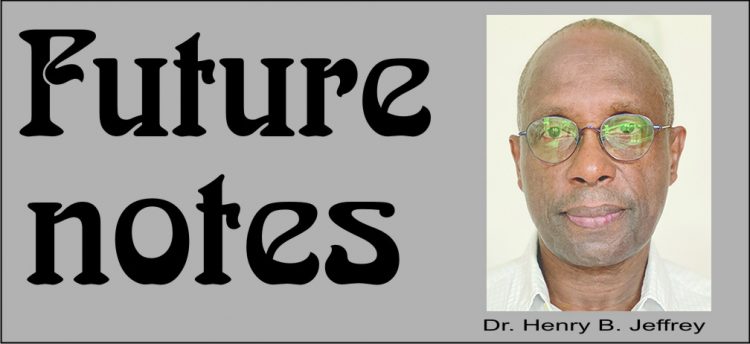 During the recent fracas in the National Assembly, Minister of Labour Joseph Hamilton is said to have taunted the opposition by asking them what they had done for Africans during their term of office. To this some members are reported to have responded that they are not there to do things for black people per se. This is not an unusual question for persons in political parties different from their ethnicity to have to field or seek to use in defence of their given position. Last January, former Prime Minister Samuel Hinds wrote a letter to the press that said some very unusual things about Africans and drew the ire of Mr. Lincoln Lewis, who requested that he ‘show this nation what he has done for the African community.’ Sam answered by pointing to the 1992-2015 achievements of the PPP government generally, but this did not please Lincoln: ‘Sam must place his record on the table. He must account for his (personal) performance…’ (SN: 20/01/2021). Indian members of the Alliance for Change (AFC) have been particularly plagued by similar questions in relation to the dismissal of the sugar workers.
During the recent fracas in the National Assembly, Minister of Labour Joseph Hamilton is said to have taunted the opposition by asking them what they had done for Africans during their term of office. To this some members are reported to have responded that they are not there to do things for black people per se. This is not an unusual question for persons in political parties different from their ethnicity to have to field or seek to use in defence of their given position. Last January, former Prime Minister Samuel Hinds wrote a letter to the press that said some very unusual things about Africans and drew the ire of Mr. Lincoln Lewis, who requested that he ‘show this nation what he has done for the African community.’ Sam answered by pointing to the 1992-2015 achievements of the PPP government generally, but this did not please Lincoln: ‘Sam must place his record on the table. He must account for his (personal) performance…’ (SN: 20/01/2021). Indian members of the Alliance for Change (AFC) have been particularly plagued by similar questions in relation to the dismissal of the sugar workers.
If 90% of the coalition support came from Africans, how can their MPs suggest that they cannot be legitimately required to show what they have done for African people?! Who do they represent? Such representation does not prevent one from striving to build a multiethnic party. Certainly, an MP should be in a position to disaggregate in some manner his personal contributions from that of his government. Today in democratic countries it is expected that the work record of MPs should be there for all to see and assess: how often they attend parliament, what positions they have taken on different subjects, what laws they have proposed, how they have voted, who are their backers, their arrangements for meeting constituents, etc. In Guyana hardly any of this information is readily available yet there is much talk about holding politicians accountable.
The problem is multidimensional. It appears that the list arrangement when coupled to the proportional representation (PR) electoral system currently in place has severely reduced the independence of MPs. My series on constitutional reform has already called for radical changes in the list and constituency systems (Future Notes, SN: 12/08/2020). However, in historical Westminster representative democratic politics MPs have a twofold responsibility: to the constituencies that voted for them and to the nation. Their job is to identify their constituency interests and try to accommodate these to the national interest. Developed in an homogeneous society, while allowing accommodation for class interests, the traditional Westminster system rejects and frowns upon those who speak of and advocate for ethnic interests.
Guyanese are the product of this kind of system and still hold this bias. When people, including MPs, consider and speak to Guyanese politics they too seek to eschew ethnic interests and speak in terms of arrangements and outcomes better suited to homogeneous societies such as Barbados and Jamaica. However, they would have spoken quite differently if they had been socialised in the European way of doing politics where the ethnic diversity of many countries has historically forced the populace and their representatives to have to reconcile three interlocking interests: constituent, ethnic and national. The ethnic diversity of Suriname and Guyana would best be accommodated with this kind of representative system and there the question of what have you done for Black/Indian/First people would be appropriate at the constituency and national levels.
As the populations of many homogeneous countries become more ethnically diverse they must also deal with the objectives expressed by the still relatively small ethnic groups and have developed mechanisms to do this, such as ethnic audits. Of course, the crude Marxist/materialist theory of ethnicity, which suggests that the major contradiction in society is class and that ethnic alienation is the result of elite exploitation of economic inequalities and will be resolved with the equitable distribution of greater wealth, has long been debunked by heavy empirical criticisms. (Eriksen, T.H. (2002) Ethnicity and Nationalism: Anthropological Perspectives, Culture, Anthropology and Society Series, 2nd ed., London: Pluto Press). The very nature of the question ‘what have you done for x group?’ speaks to a similarly misguided notion in both political parties that Guyana’s competitive political system allows them to prove that they did or can do better for the other side! Relative scarcity will always exist and the question of what is sufficient for any ethnic group is a politically controversial one that, without exception, every ethnic group of sufficient size and/or a propitious location has striven to make for itself. The storming of the United States Congress after the last presidential election suggests that ethnic relations are affected by perceptions of the location of this political power.
However, audits that determine what the various ethnic groups value and to what extent these requirements are being met could facilitate better discourse, policy formulation and where necessary perhaps become the foundation of a final solution. In 2016 the government of the United Kingdom announced that it would conducts a Race Disparity Audit to uncover the ‘uncomfortable truths’ about ethnic disparities: the differences of treatment or outcomes experienced by people of different ethnicities in all public services and government departments. The objective of the audit was to promote positive change through data transparency taken from many government datasets. Among others, it dealt with the percentage of pupils meeting the expected standards in reading by ethnicity, the percentage of households who own their own houses, weekly income by ethnicity and ethnic representation in the police force in relation to the community served. By most measures ethnic minorities are achieving worse outcomes than white people but by many measures differences between ethnic minorities are more significant than between ethnic minorities in aggregate and white people. By some measures, it is the white British group who are achieving the worst outcomes (https://www.ohchr.org /Documents /Issues/Racism/WGEAPD/ Session 24/MarcusBell .pdf).
The welfare of the various ethnic groups is important and should be constitutionally and otherwise openly recognised and represented, but to do so one must identify what they want and where they stand in relation to such goals. Ideally, the state, perhaps through its parliamentary human rights commission, could establish, monitor and periodically comment upon an audit type arrangement. I have recently claimed that the Ethnic Relations Commission ‘has made no impact because it cannot do so unless the persistent ethnic political tug of war is quelled, and this cannot be achieved without forms of consensual political accommodation.’ However, since the ethnic parties that currently dominate the state are unlikely to want to undermine the source of their propaganda by producing more scientific data, perhaps the ‘independent’ Ethnic Relations Commission could take hold of this work and in so doing make a more meaningful contribution. Of course, at the micro level all stakeholders such as those at present involved in work concerned with the United Nations International Decade for Peoples of African Descent, the Guyana Human Rights Association and others should individually or in collaboration acquire and monitor such ethnic information.









